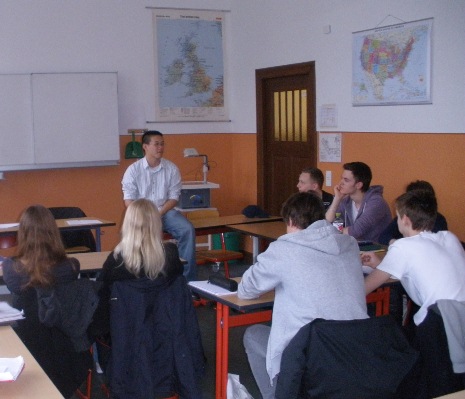“How do I tell a student who wants to be a bank manager that he’s in the wrong school and will never be able to accomplish his dream?” As a 2008 Humanity in Action Fellow, I remember shaking my head when I heard these words uttered by a teacher at the school we were visiting.
Germany has long maintained a stratified three-tier education system in which only students in the top track (Gymnasium, or university preparatory school) have a shot at attending university. In relaying this story of a young boy who aspired to be a bank manager but was not in a Gymnasium, the teacher expressed a feeling of perplexed helplessness for late-blooming students such as this boy.
That experience inspired me to spend extended time in Berlin—beyond just a four- or five-week program—to talk to and learn from young students as they progress in their own educational journey. The Fulbright Program offered me the perfect opportunity to conduct such an ethnographic research project. I visited all types of schools in Berlin and spoke with students, families and teachers about how they perceived access to education in Germany, particularly in the context of social mobility.
Through my university’s connections in Berlin, I was able to connect with the chair of American Studies at Humboldt Universität zu Berlin, who subsequently became my primary affiliation for my Fulbright project. He also connected me with another research professor at a large social sciences research institute in Berlin giving me a second affiliation for my project.
More than anything, my research project taught me that I do not want to spend my life doing research. While this may seem counterintuitive, this revelation impacted me in two ways: 1) I realized that I wanted to pursue a career devoted to public service and direct action in my community, and 2) I understood that I had much more to learn about education and policy.
As such, I’ll be heading to Teachers College, Columbia University this fall to pursue a Master of Education in Politics and Education even though I had not planned on pursuing graduate studies for another few years. My Fulbright experience sparked an even greater desire to delve deeper into two issues that I am passionate about: social justice and educational opportunity.
For anyone thinking about applying, the best advice I can offer is: simply apply.
I sought out mentors at my university, who helped me hone my ideas and critique my essays multiple times before I finally submitted my application, and spoke with several former Fulbrighters to pick their brains about their experiences. Unequivocally, their responses affirmed my decision to apply and pursue an opportunity to conduct research abroad.
More than just research or teaching, I had an opportunity to travel and see Europe, immerse myself in Germany’s fascinating culture and through it all, make friends for life. So, do yourself a favor. Apply for the chance to become a Fulbright Student.
Photo: Samson Lim, 2010-2011, Germany, visits the Paul-Natorp-Oberschule in Berlin’s Schöneberg neighborhood to talk with students about diversity in the United States

